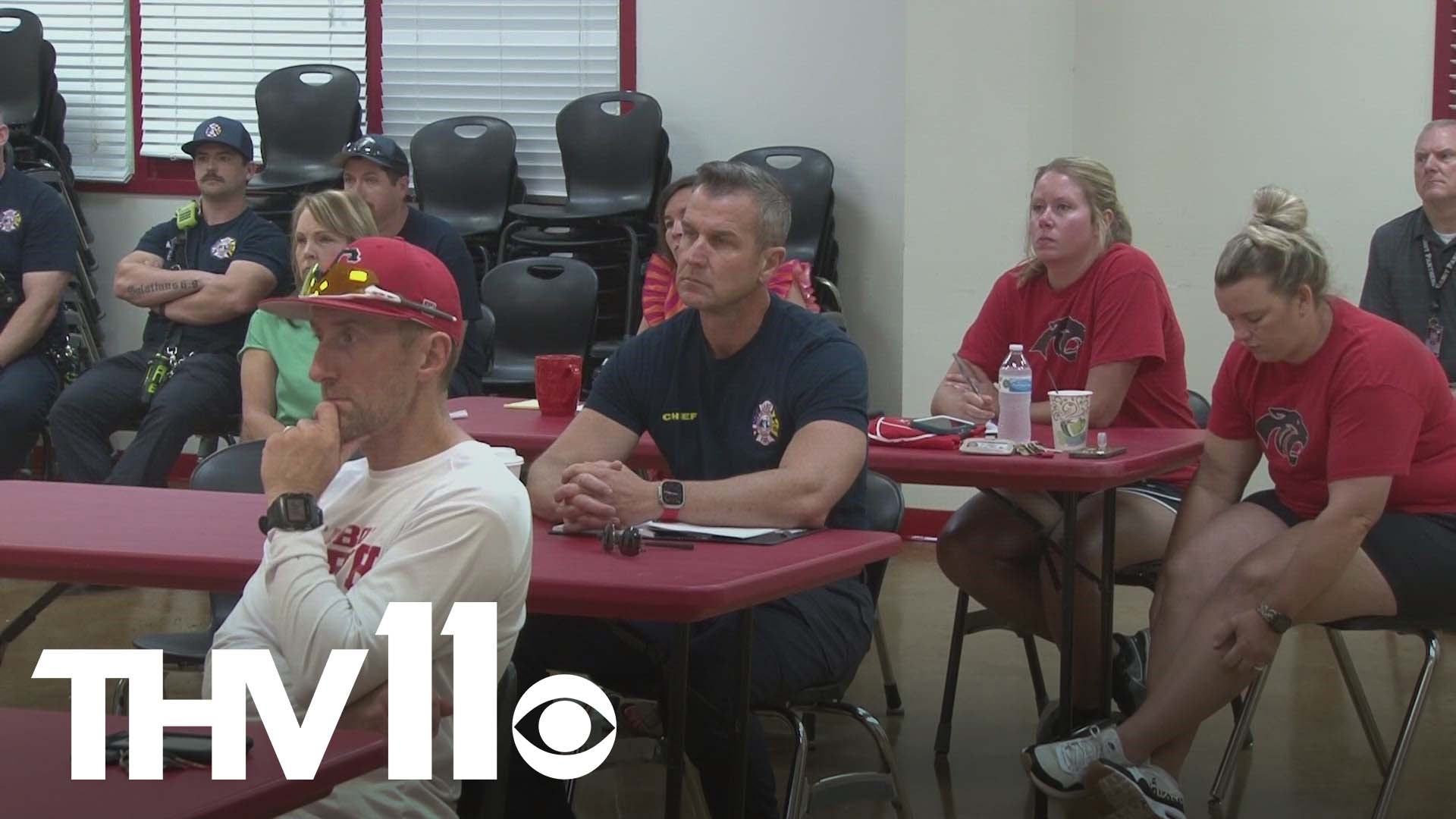CABOT, Ark. — We are just two weeks from the touchdowns, tackles, and lights on Friday night. However, it's already game time for those making sure kids are safe when they run out of the tunnel.
Jason Cates, Cabot's head athletic trainer, went over the district's Emergency Action Protocols detail by detail.
“CPR, AED training, and first aid training. Knowing that a coach is not a medical professional, they do not have a medical license, but anyone can save a life,” he said.
That’s exactly what this class is for— making sure not only emergency personnel are ready to act, but coaches and volunteers as well beginning with emergency action protocols or EAP.
This training is not just encouraged in the state, it’s required by the Arkansas Activities Association.
Deputy Executive Director Joey Walters said that “all of their registered volunteers and their coaches have to be trained in sudden cardiac every three years.”
Every 7th-12th grade school competing in AAA-sanctioned events must have an automated external defibrillator on site, which can admittedly be tough for small schools in rural areas.
“They may have a hospital or doctor 20 miles away, but we try to provide the resources that they need,” he added.
Any athlete experiencing fainting, chest pains, or shortness of breath must be medically cleared by an appropriate healthcare professional before returning.
“We have learned so much through the sports medicine realm of things that it has totally changed how we practice and how we operate,” Cates said.
Before ever setting foot on the field every athlete and student must read and sign a Cardiac Fact Sheet issued by the AAA.

